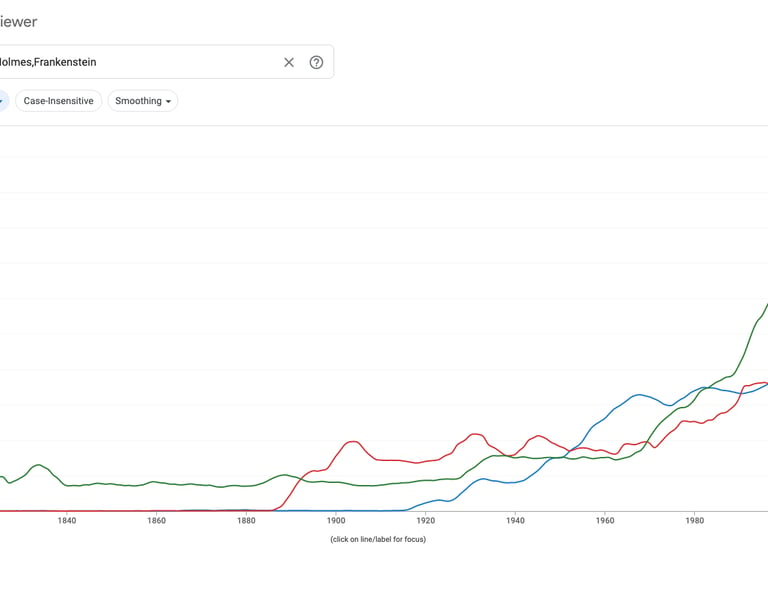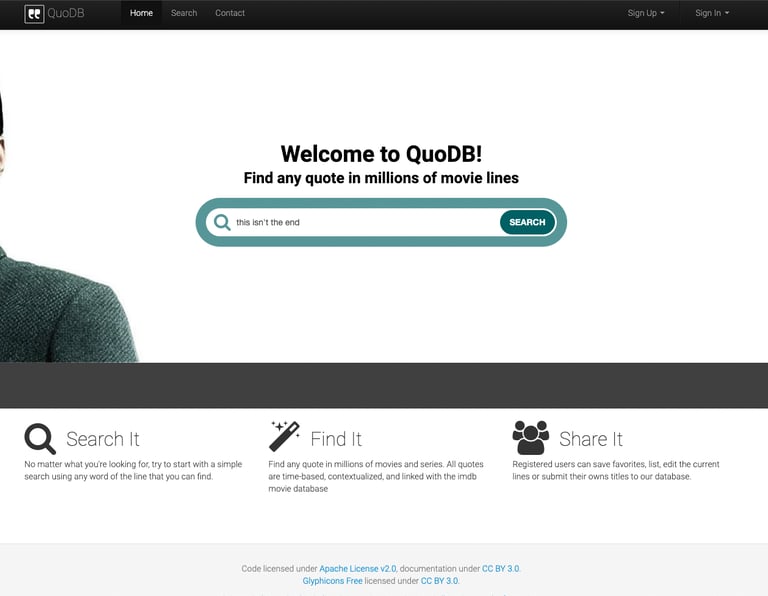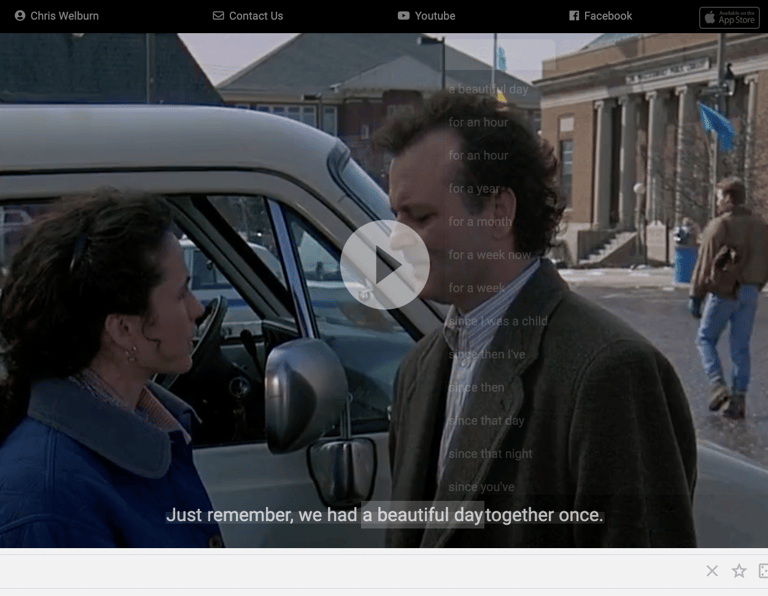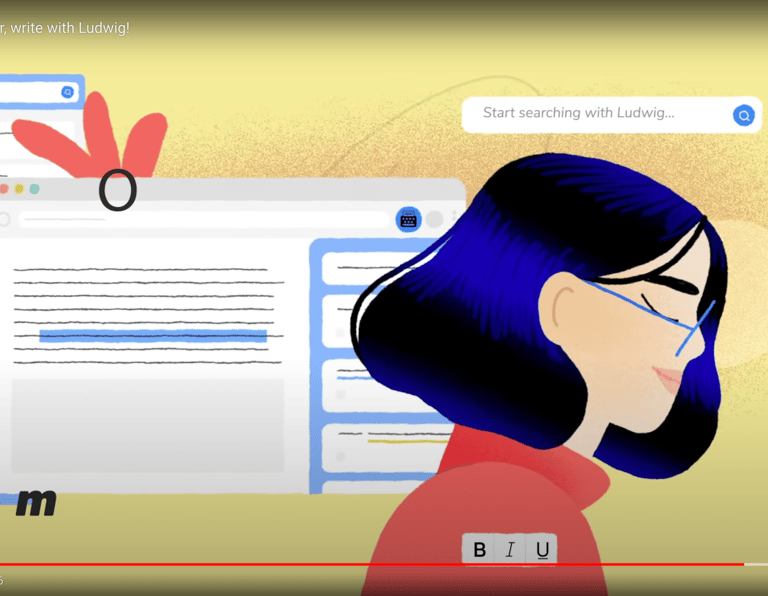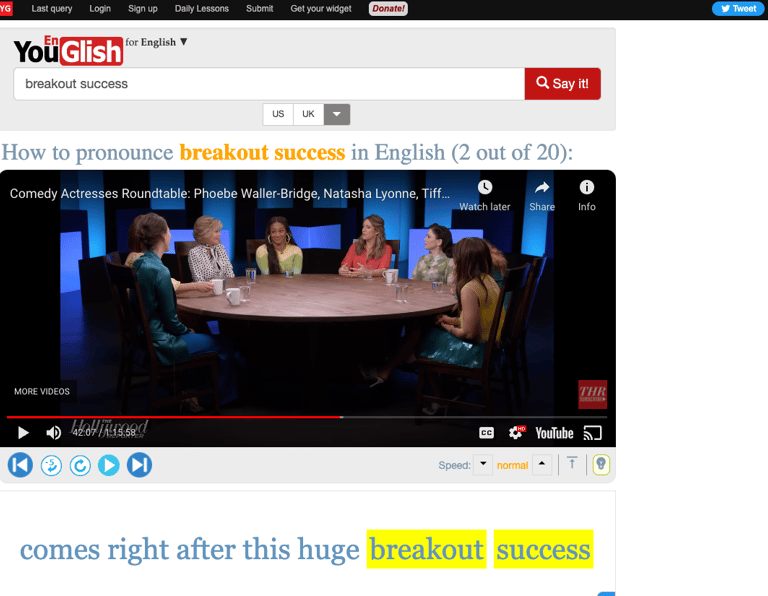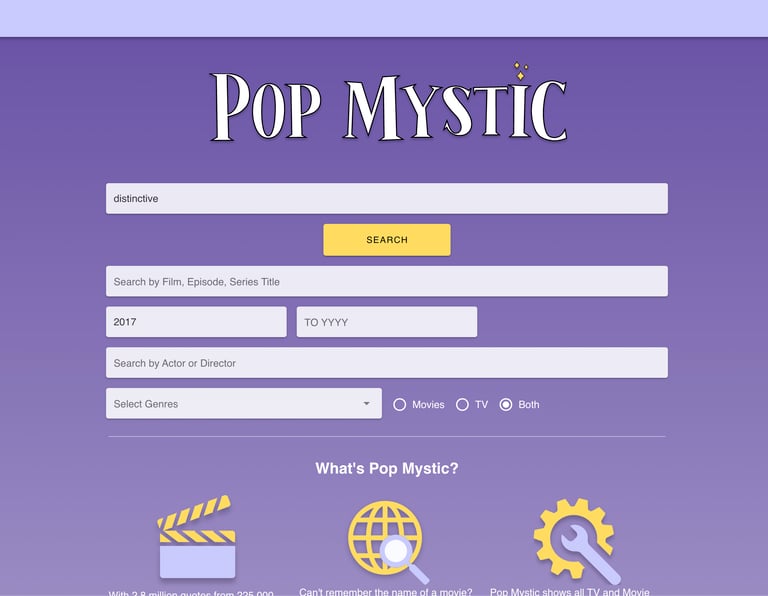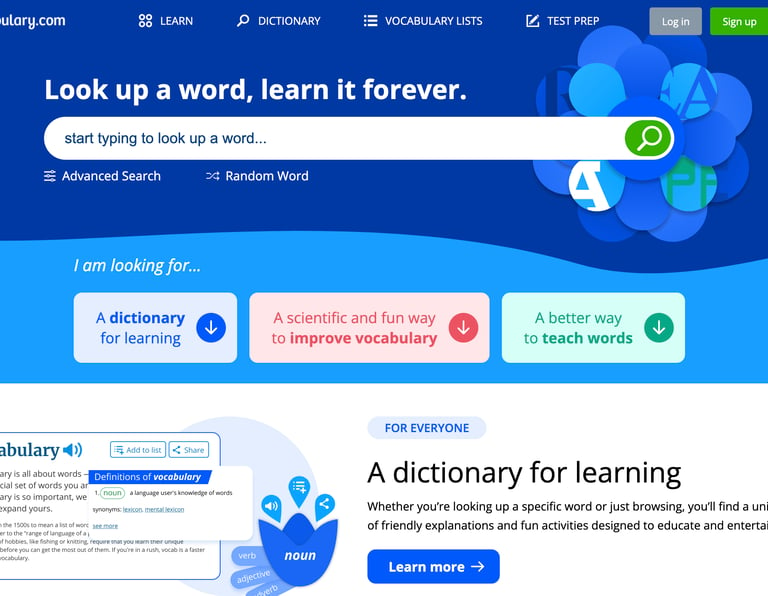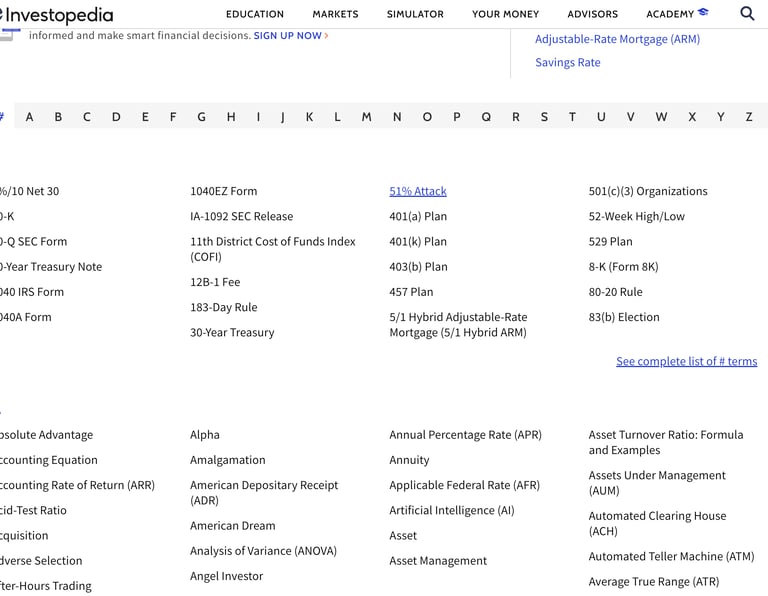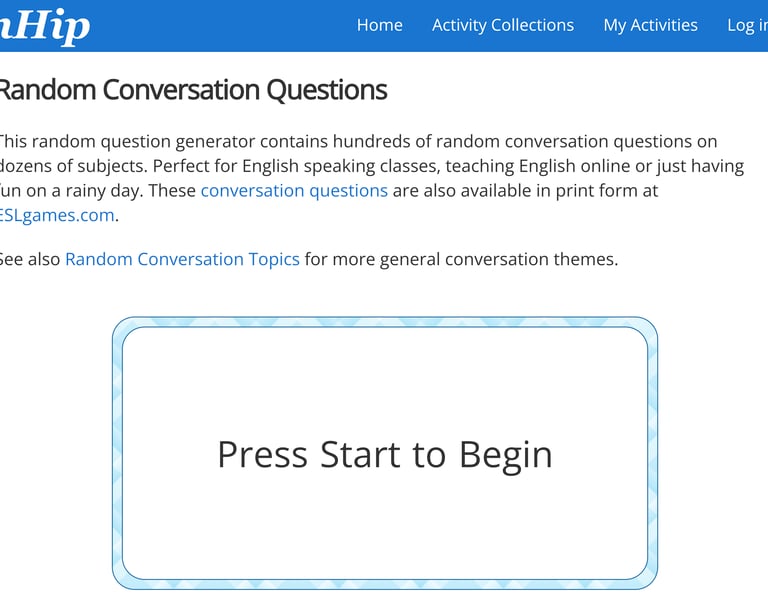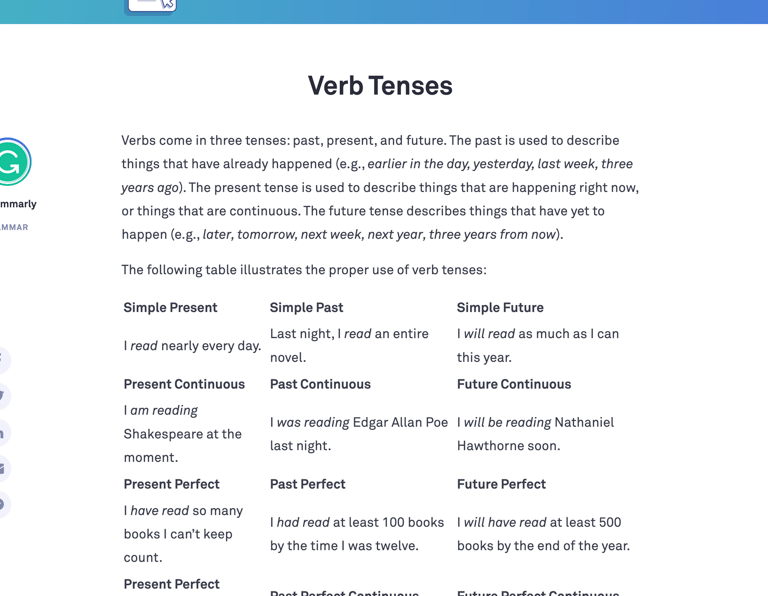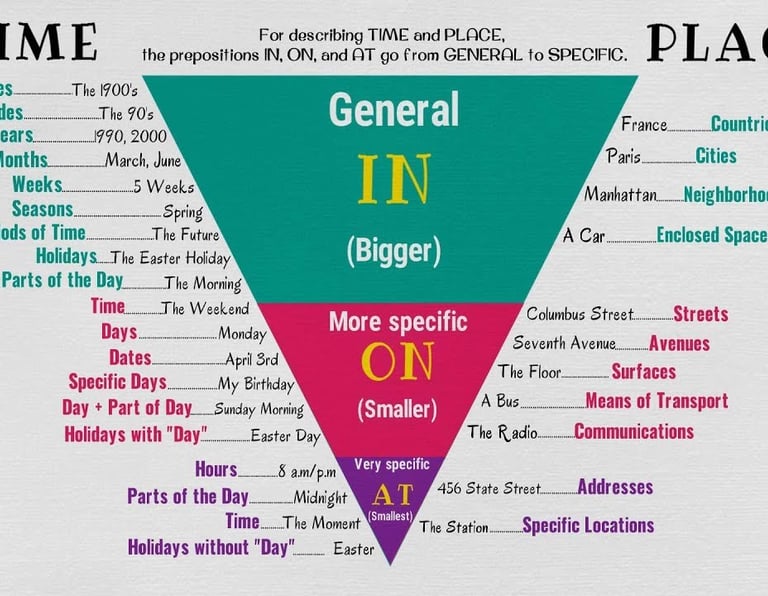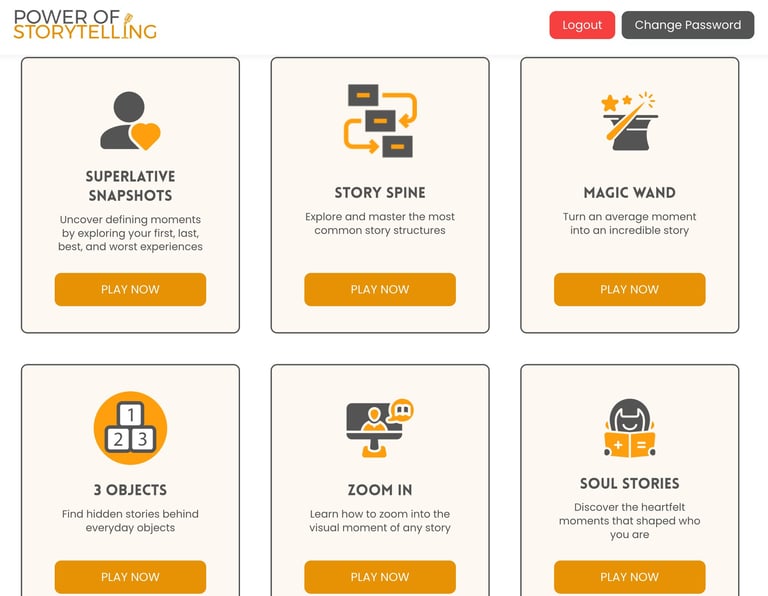Toolkit
Over the years that I've been helping people to improve their English I've discovered some great tools to help you achieve your goals.
This is a collection of some of my favourites.
Articles and explainers


Searching through history
Have you ever wondered how often people actually use a word? Maybe you want to know whether it's worth learning a word if people don't actually use it? Search for 8 Billion books with every query and find out right here.
Search for words in movie scripts
If you've found a word that you would really like to hear spoken by real people in a real situation then maybe finding it in a movie is the next best thing. This website lets you search millions of movie lines to find exactly the word you need. Hear your new vocabulary in lots of different contexts and in, (almost), real conversations.
Search for words in movie clips
Maybe you don't just want to read the moment that a movie character, maybe you actually want to hear them say it! This is were PlayPhrase comes in. You can search for a word or phrase and hear it said by actors from both old and new movies.
Search for written examples
Ludwig is an incredible tool. Their premium version is definitely worth it but you can conduct 6 searches per day for free. It will show you high quality sample sentences from great sources like The New York Times and Tech Crunch.
Search Youtube for words
Searching YouTube is a powerful way to explore the pronunciation and usage or a word or phrase. Furthermore, 'Youglish' lets you filter by accent. Here you'll find a lot of documentary style videos and conversations that searching movies won't give you.
How do people actually use a word?
Another movie script search!
With 2.8 million quotes from 225,000 titles, Pop Mystic is the world's largest TV and Movie quote search engine. With Pop Mystic you can find examples of the words that you're interested in as they are featured in movie script from many decades past, or specify everything from dates to genres. It's a great tool for understanding vocabulary!
Vocabulary.com
There are a lot of ways to find word definitions on the internet. Various dictionary websites and of course, you can just type 'define' into Google, followed by your word and you'll get a great answer. However, vocabulary.com has thousands of definitions written by human beings to actually explain how to use the word, instead of just defining it.
Dictionaries
Investopedia
Investopedia is a great website for articles, (you'll find it on our "Article based classes" page too), but they also have the most extensive business term dictionary on the internet. If you've come across a phrase or word at work and need an explanation, there's a good chance it'll be in here.
Random question generator.
Random question generators can be great for finding discussion topics for our more relaxed and casual conversation classes. However they are also a great resource for making your speaking practice more interesting when you're alone. For techniques and tips on how to practice speaking when you're alone just ask me during our next call!
Everything else.
Verb tenses
You might know Grammarly from their popular software to improve your writing. However their grammar blog is a fantastic place to find quick guides to different components of grammar written in an accessible and easy to understand way. In particular I really like their 'verb tenses' page.
The preposition triangle.
Prepositions can be one of the most difficult parts of the English language to get right. It might seem like there are so many rules and remembering them all feels like climbing a mountain! This little tool can help put everything in perspective. Feel free to download it for safe keeping!
Speaking games.
A fantastic group of prompts, tips, and ideas to get you telling stories and make your story telling more dynamic and interesting. If you create a free account then you can unlock everything on the page and there are some great challenges to keep you on your toes!
Quick links
My favourite general grammar practice quizzes, click here.
To find out how to pronounce -ed at the end of past tense verbs, click here.
If you're confused as to when to use "what" and when to use "that", click here.
To see when when to use a or an, click here.
Adverbs of frequency explainer, click here.
When should we use "it" and when should we use "this", click here.
First language specific resources.
Most common grammar mistakes that Mandarin Chinese speakers make, click here.
Most common pronunciation mistakes that Mandarin Chinese speakers make, click here.
Most common grammar mistakes that Russian and Slavic language speakers make, click here.
Most common pronunciation mistakes that Russian and Slavic language speakers make, click here.
Most common grammar mistakes that Spanish speakers make, click here.
Most common pronunciation mistakes that Spanish speakers make, click here.
Most common grammar mistakes that Portuguese speakers make, click here.
Most common pronunciation mistakes that Portuguese speakers make, click here.
Most common grammar mistakes that German speakers make, click here.
Most common pronunciation mistakes that German speakers make, click here.

